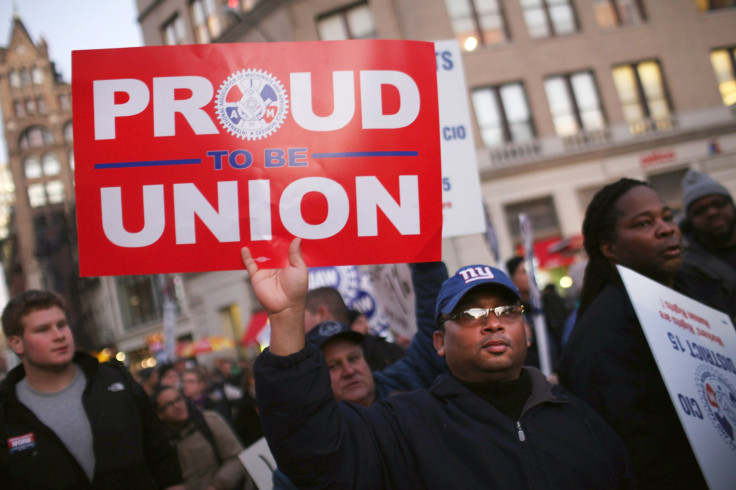Americans Remain Divided On The Steady Decline Of Unions: Pew Research Poll

The American public remains divided on the long-term decline of organized labor. Forty-five percent say the decades-long drop in the share of workers who belong to labor unions is “mostly bad” while 43 percent say it’s “mostly good,” according to a new Pew Research poll. Union membership among American workers has steadily fallen from its peak of almost 27 percent, in 1953, to just over 11 percent last year.
Two decades ago, Americans were similarly divided on labor’s decline, according to a 1994 NBC poll.
Labor unions, overall, though, remain popular. Forty-eight percent of Americans have favorable opinions of unions, compared to 39 percent with unfavorable views. Support is up from historic lows in 2010 and 2011 but still far from the 63 percent who held favorable views in 2001.
Class, race and age all significantly shape the way Americans view the labor movement. Of those making under $30,000 a year, 54 percent have favorable opinions, while only 31 percent do not. Sixty percent of black people view unions favorably, compared to just 45 percent of whites. And fifty-five percent of people aged 18 to 29 view unions favorably, but only 46 percent of other age groups feel the same.
Unions are about as popular as corporations, which 48 percent of people view favorably. That number is still down, however, from the 1980s to early 2000s, when around two-thirds of people regularly said they viewed corporations positively.
© Copyright IBTimes 2024. All rights reserved.












